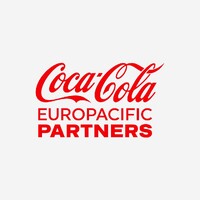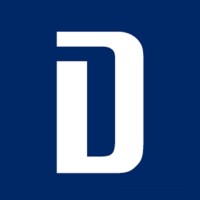
Coca-Cola Europacific Partners
We make, move and sell the world's most loved drinks, through our great brands, great people, great execution and all done sustainably. Read our privacy policy here ⬇️



We make, move and sell the world's most loved drinks, through our great brands, great people, great execution and all done sustainably. Read our privacy policy here ⬇️

Dräger is an international leader in the fields of medical and safety technology. The family-owned company was founded in Lübeck, Germany, in 1889. The company’s long-term success is based on the four key strengths of its value-driven culture: customer intimacy, professional employees, continuous innovation and a commitment to outstanding quality. Dräger offers its customers anaesthesia workstations, medical ventilation, patient monitoring as well as neonatal care for premature babies and newborns. With ceiling supply units, IT solutions for the OR, and gas management systems the company is at the customer’s side throughout the entire hospital. Emergency response services, law and regulatory enforcement and the industry trust in Dräger’s integrated hazard management, in particular for personal protection and plant safety. This includes: respiratory protection equipment, stationary and portable gas detection systems, professional diving equipment and systems, as well as alcohol and drug impairment detection. In collaboration with its customers Dräger develops customized solutions, such as entire fire training systems, training concepts and workshops. Dräger has more than 13.700 employees worldwide and is currently present in more than 190 countries. The company has sales and service subsidiaries in over 40 countries. Its development and production facilities are based in Germany, Great Britain, Sweden, South Africa, the USA, Brazil, the Czech Republic and China. http://t4.life/dataprotection Drägerwerk AG & Co. KGaA Board of Managing Directors: Stefan Dräger (Chairman), Rainer Klug, Gert-Hartwig Lescow, Dr. Reiner Piske, Anton Schrofner Company registered at Lübeck Local Court Register of Companies Number: HRB 7903 HL Turnover tax identification number as per § 27a Turnover Tax Law: DE 135082211 General partner: Drägerwerk Verwaltungs AG Company registered at Lübeck Local Court Register of Companies Number: HRB 7395 HL
Security & Compliance Standards Overview












No incidents recorded for Coca-Cola Europacific Partners in 2025.
No incidents recorded for Dräger in 2025.
Coca-Cola Europacific Partners cyber incidents detection timeline including parent company and subsidiaries
Dräger cyber incidents detection timeline including parent company and subsidiaries
Last 3 Security & Risk Events by Company
Angular is a development platform for building mobile and desktop web applications using TypeScript/JavaScript and other languages. Prior to versions 19.2.16, 20.3.14, and 21.0.1, there is a XSRF token leakage via protocol-relative URLs in angular HTTP clients. The vulnerability is a Credential Leak by App Logic that leads to the unauthorized disclosure of the Cross-Site Request Forgery (XSRF) token to an attacker-controlled domain. Angular's HttpClient has a built-in XSRF protection mechanism that works by checking if a request URL starts with a protocol (http:// or https://) to determine if it is cross-origin. If the URL starts with protocol-relative URL (//), it is incorrectly treated as a same-origin request, and the XSRF token is automatically added to the X-XSRF-TOKEN header. This issue has been patched in versions 19.2.16, 20.3.14, and 21.0.1. A workaround for this issue involves avoiding using protocol-relative URLs (URLs starting with //) in HttpClient requests. All backend communication URLs should be hardcoded as relative paths (starting with a single /) or fully qualified, trusted absolute URLs.
Forge (also called `node-forge`) is a native implementation of Transport Layer Security in JavaScript. An Uncontrolled Recursion vulnerability in node-forge versions 1.3.1 and below enables remote, unauthenticated attackers to craft deep ASN.1 structures that trigger unbounded recursive parsing. This leads to a Denial-of-Service (DoS) via stack exhaustion when parsing untrusted DER inputs. This issue has been patched in version 1.3.2.
Forge (also called `node-forge`) is a native implementation of Transport Layer Security in JavaScript. An Integer Overflow vulnerability in node-forge versions 1.3.1 and below enables remote, unauthenticated attackers to craft ASN.1 structures containing OIDs with oversized arcs. These arcs may be decoded as smaller, trusted OIDs due to 32-bit bitwise truncation, enabling the bypass of downstream OID-based security decisions. This issue has been patched in version 1.3.2.
Suricata is a network IDS, IPS and NSM engine developed by the OISF (Open Information Security Foundation) and the Suricata community. Prior to versions 7.0.13 and 8.0.2, working with large buffers in Lua scripts can lead to a stack overflow. Users of Lua rules and output scripts may be affected when working with large buffers. This includes a rule passing a large buffer to a Lua script. This issue has been patched in versions 7.0.13 and 8.0.2. A workaround for this issue involves disabling Lua rules and output scripts, or making sure limits, such as stream.depth.reassembly and HTTP response body limits (response-body-limit), are set to less than half the stack size.
Suricata is a network IDS, IPS and NSM engine developed by the OISF (Open Information Security Foundation) and the Suricata community. In versions from 8.0.0 to before 8.0.2, a NULL dereference can occur when the entropy keyword is used in conjunction with base64_data. This issue has been patched in version 8.0.2. A workaround involves disabling rules that use entropy in conjunction with base64_data.